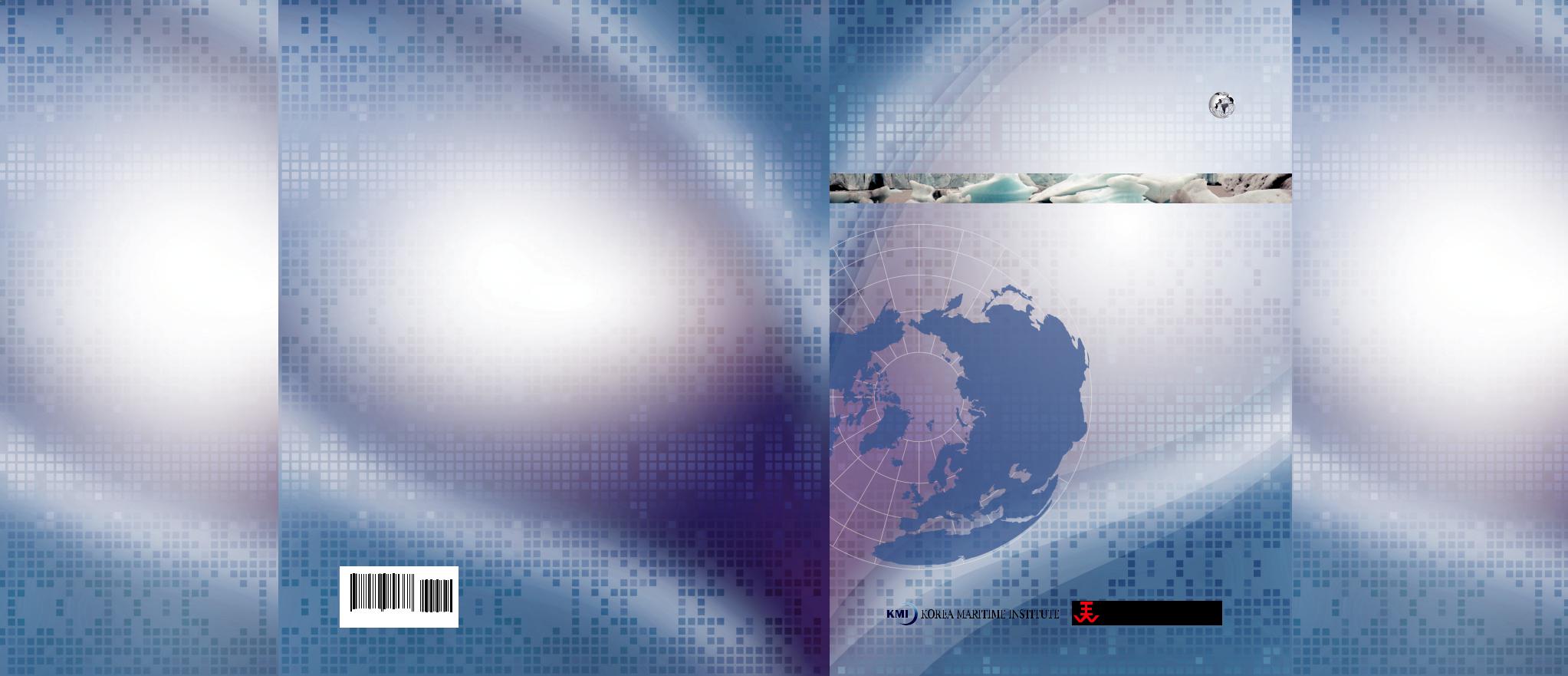
NPAC 2014 Proceedings_final
.pdf
Oran R. Young is a professor emeritus at the Bren School of Environmental Science & Management at the University of California, Santa Barbara. Young served for six years as founding chair of the Committee on the Human Dimensions of Global Change of the US National Academy of Sciences. As an expert on Arctic issues, Young recently chaired the Steering Committee of the Arctic Governance Project. Past service in this realm includes co-chair of the Working Group on Arctic International Relations, vice-president of the International Arctic Science Committee, chair of the Board of Governors of the University of the Arctic, consultant to the Standing Committee of Parliamentarians of the Arctic Region, and co-chair of the 2004 Arctic Human Development Report. Young has a Ph.D. in Political Science from Yale University, an M.A. in Political Science from Yale University, and a A.B. in Government from Harvard University.
Jong Deog Kim is a research fellow of the Korea Maritime Institute, a government-affiliated organization in Republic of Korea. He serves as a director general of planning & coordination division and as the Arctic policy research program manager including North Pacific Arctic Conference in Korea Maritime Institute. He has led and participated in several national projects on coastal and ocean policy and on international marine environmental relations in his research career. Kim has a Ph.D. in Oceanic Architecture and Engineering from Nihon University, an M.A. and a B.A from Seoul National University.
Yoon Hyung Kim is a professor emeritus of economics at Hankuk University of Foreign Studies and a senior fellow at the East-West Center. He also serves as an executive board member of the Korea Forum for Progress. He served as independent director of the Korea Gas Corporation, S-Oil, and the Korea Resource Management Corporation. He is a former director general of the Planning Board of the Ministry of Energy and Resources and a former senior fellow at the Korea Development Institute. On Arctic marine issues, he presently chairs the Organizing Committee of the North Pacific Artic Conferences at the East-West Center. Kim has a Ph.D. in economics from Stanford University, an M.S. in statistics from Stanford University, and a B.A. in economics from the University of Wisconsin at Madison.
The Korea Maritime Institute (KMI) is a government-affiliated research organization under the umbrella of the National Research Council for Economics, Humanities and Social Science (NRCS) in the Republic of Korea. Since its establishment in 1984, KMI has been a major think-tank in the development of national maritime and fisheries policies including shipping and logistics, port development, coastal and ocean management, maritime safety and security, and fisheries affairs.
The East-West Center (EWC) promotes better relations and understanding among the people and nations of the United States, Asia, and the Pacific through cooperative study, research, and dialogue. Established by the U.S. Congress in 1960, the Center serves as a resource for information and analysis on critical issues of common concern, bringing people together to exchange views, build expertise, and develop policy options.
9 3 3 0 0
9 |
7 8 8 9 7 9 |
9 8 9 6 8 7 |
ISBN 978-89-7998-968-7
YOUNG
KIM and KIM
the on Dialogue Pacific North A |
in Arctic The |
Cooperation International of Future |
Affairs World |
KMI
Press
2014 North Pacific Arctic Conference Proceedings
The Arctic in World Affairs
A North Pacific Dialogue on International Cooperation in a Changing Arctic
Edited by
Oran R. Young
Jong Deog Kim
Yoon Hyung Kim
The Arctic in World Affairs: A North Pacific Dialogue on International Cooperation in a Changing Arctic addresses future cooperation in five areas: patterns of Arctic investment, national Arctic strategies, Arctic state/non-Arctic state engagement, innovations applicable to the Arctic and indigenous responses to Arctic development. Bringing together prominent experts from the three North Pacific Arctic coastal states (Canada, Russia, and the United States) and three leading North Pacific nonArctic states (China, Japan, and Korea), the book goes beyond generalities; it attempts to identify and evaluate the effectiveness of innovative measures that will contribute to maintaining the Arctic as a zone of peace and promoting sustainable development in this region.
Regarding patterns of Arctic investment, the book addresses Arctic natural resource development and linkages to global markets using Arctic shipping as a prominent example, but also taking a broader perspective on business and the investment environment in the Arctic.
On national Arctic strategies, the book compares the national Arctic strategies of key Arctic states (Canada, Russia, and the U.S.) and those of key non-Arctic states (China, Japan, Korea), focusing on the main themes of these strategies and prospects for their implementation. Comparing national Arctic strategies will provide an understanding of the driving forces and interests behind Arctic policy formulation.
In the case of Arctic state/non-Arctic state engagement, the book examines the efforts of non-Arctic states to play a role in addressing Arctic issues. The book briefly identifies areas of interest and priority issues for China, Japan, and Korea, and will review any previous experiences with the Arctic Council working groups (AMAP, PAME, EPPR, SDWG, CAFF and ACAP) and other subsidiary bodies.
On innovations applicable to the Arctic, the book reviews developments in the area of R&D and explore their implications for the development of Arctic infrastructure.
Regarding indigenous responses to Arctic development, the book devotes special attention to enhancing the understanding of non-Arctic actors regarding Arctic peoples and exploring opportunities for cooperation across this divide. Now that Korea, Japan and China are Arctic Council non-Arctic state observers, the new reality for these nations is that there are six indigenous groups sitting at the table with the Arctic states as Permanent Participants (and most are joining in the work of the technical working groups).
The book attempts to fill gaps in knowledge regarding the maritime Arctic, identifying remaining uncertainties, and developing policy innovations that can promote peaceful and sustainable uses of Arctic resources in the future.

The Arctic in World Affairs
A North Pacific Dialogue on International Cooperation in a Changing Arctic
2014 North Pacific Arctic Conference Proceedings

KMI/EWC SERIES ON THE ARCTIC IN WORLD AFFAIRS
The Korea Maritime Institute (KMI) is a government-affiliated research organization under the umbrella of the National Research Council for Economics, Humanities and Social Science (NRCS) in the Republic of Korea. Since its establishment in 1984, KMI has been a major think-tank in the development of national maritime and fisheries policies including shipping and logistics, port development, coastal and ocean management, maritime safety and security, and fisheries affairs. Currently, KMI is building research capacity on the new ocean industries, the so-called Blue Economy, for sustainable coastal and ocean resources development. KMI’s international research network covers not only the Asian region but also other regions such as Africa, the Pacific islands, the Americas, Europe, and the polar areas.
The East-West Center promotes better relations and understanding among the people and nations of the United States, Asia, and the Pacific through cooperative study, research, and dialogue. Established by the U.S. Congress in 1960, the Center serves as a resource for information and analysis on critical issues of common concern, bringing people together to exchange views, build expertise, and develop policy options. The Center’s 21-acre Honolulu campus, adjacent to the University of Hawai’i at Mānoa, is located midway between Asia and the U.S. mainland and features research, residential, and international conference facilities. The Center’s Washington, D.C., office focuses on preparing the United States for an era of growing Asia Pacific prominence.
The KMI/EWC series The Arctic in World Affairs publishes work from the North Pacific Arctic Conference, which aims to provide a forum in which key individuals from relevant countries and major stakeholder groups are able to develop relations of trust that allow them to discuss complex and sometimes difficult issues pertaining to the maritime Arctic in a spirit of problem solving rather than advocacy.
The first volume in the series, A North Pacific Dialogue on Arctic Transformation, based on the 2011 North Pacific Artic Conference, was edited by Robert W. Corell, James Seong-Cheol Kang, and Yoon Hyung Kim.
The second volume, A North Pacific Dialogue on Arctic Marine Issues, from the 2012 conference, was edited by Oran R. Young, Jong Deog Kim, and Yoon Hyung Kim.
The third volume, A North Pacific Dialogue on the Future of the Arctic, from the 2013 conference, was edited by Oran R. Young, Jong Deog Kim, and Yoon Hyung Kim.
This volume, A North Pacific Dialogue on International Cooperation in a Changing Arctic, from the 2014 conference, was edited by Oran R. Young, Jong Deog Kim, and Yoon Hyung Kim.
ii

The Arctic in World Affairs
A North Pacific Dialogue on International Cooperation in a Changing Arctic
2014 North Pacific Arctic Conference Proceedings
Edited by
Oran R. Young
Professor Emeritus, Bren School of Environmental Science and Management, University of California (Santa Barbara), USA
Jong Deog Kim
Research Fellow, Korea Maritime Institute, Republic of Korea
Yoon Hyung Kim
Senior Fellow, East-West Center, USA and Professor Emeritus of Economics, Hankuk University of Foreign Studies, Republic of Korea
KMI/EWC SERIES ON THE ARCTIC IN WORLD AFFAIRS
A JOINT PUBLICATION OF THE KOREA MARITIME INSTITUTE AND THE EAST-WEST CENTER
iii

Korea Maritime Institute and East-West Center 2014
All rights reserved. No part of this publication may be reproduced, stored in a retrieval system or transmitted in any form or by any means, electronic, mechanical or photocopying, recording, or otherwise without the prior permission of the publisher.
Published by
Korea Maritime Institute
KBS Media center bldg., 45 Maebongsan-ro, Mapo-gu,
Seoul, 121-270 Republic of Korea
www.kmi.re.kr
East-West Center 1601 East-West Road
Honolulu, Hawaii 96848-1601, USA www.eastwestcenter.org
Published in December 2014
ISBN 978-89-7998-968-7 93300

Contents
List of Tables |
|
|
ix |
|
List of Figures |
|
|
x |
|
Contributors |
|
|
xii |
|
Preface |
|
|
xiv |
|
1. |
Introduction and Overview |
1 |
||
|
Yoon Hyung Kim, Oran R. Young, and Jong Deog Kim |
|
||
PART I PATTERNS OF ARCTIC INVESTMENT |
|
|||
2. |
Offshore Petroleum and Maritime Infrastructure |
23 |
||
|
Arild Moe and Svein Vigeland Rottem |
|
||
|
Offshore Petroleum Activities and Maritime Infrastructure |
23 |
||
|
Concluding Remarks |
|
|
35 |
3. |
Patterns of Investment in the Russian Onshore Arctic: |
41 |
||
|
An Area of Stable Growth? |
|
||
|
Valeriy A. Kryukov |
|
|
|
|
Introduction |
|
|
41 |
|
European Land Area of Russia’s Arctic Zone |
43 |
||
|
Northwestern Siberia – The Yamalo-Nenets Autonomous Okrug |
47 |
||
|
Eastern and Northeastern Siberia |
51 |
||
|
Eastern Taymyr (Khatanga), Northwestern Sakha Republic (Yakutia), |
|
||
|
and the Far East |
|
|
53 |
|
General Considerations |
|
|
56 |
|
Commentaries |
|
|
|
|
Tatiana Mitrova |
62 |
|
|
|
Nam Yll Kim |
70 |
|
|
|
Heather A. Conley |
79 |
|
|
|
Lawson W. Brigham |
87 |
|
|
|
Hua Xu 91 |
|
|
|
|
Ryuichi Shibasaki |
102 |
|
|
|
Sung Woo Lee |
108 |
|
|
v

PART II COMPARING NATIONAL ARCTIC STRATEGIES
4. |
Canada’s Arctic Policy |
117 |
|
Bernard W. Funston |
|
5. |
Russia’s Arctic Policy |
131 |
|
Alexander N. Vylegzhanin |
|
6. |
United States’ Arctic Policy |
155 |
|
Raymond V. Arnaudo |
|
7. |
China’s Arctic Policy |
172 |
|
Jian Yang |
|
8. |
Japan’s Arctic Policy |
188 |
|
Fujio Ohnishi |
|
9. |
Korea’s Arctic Policy |
207 |
|
Jong Deog Kim |
|
PART III ARCTIC STATE/NON-ARCTIC STATE ENGAGEMENT
10. Navigating the Interface |
225 |
|
Oran R. Young |
|
|
The Globalization of the Arctic |
226 |
|
Non-Arctic State Engagement in the Arctic Council |
229 |
|
Broader Intergovernmental Mechanisms |
232 |
|
Nongovernmental Organizations |
237 |
|
Public-Private Partnerships in the Arctic |
239 |
|
Informal Venues |
|
242 |
Conclusion |
|
244 |
Commentaries |
|
|
Lars-Otto Reiersen 251 |
|
|
Jiayu Bai |
256 |
|
Eiji Sakai |
264 |
|
Sung Jin Kim 276
vi

PART IV INNOVATIONS APPLICABLE TO THE ARCTIC
11. A Fibre Optic System for Canada’s Western Arctic |
287 |
Michael Aumond |
|
Project Location and Objectives |
287 |
Economics of Northern Telecommunications Systems |
290 |
MVFL System Architecture |
295 |
MVFL Project Business Case |
298 |
12. Research Activities of KRISO Ice Tank |
300 |
|
Kuk Jin Kang |
|
|
KRISO Ice Tank Facility |
|
300 |
Research Activities of KRISO Ice Tank |
305 |
|
Future Plans for KRISO Ice Tank |
311 |
|
Discussion: What New Technologies in the Areas of Future Arctic |
||
Marine Shipping and Associated R&D are on the Horizon that |
||
Will Impact the Future of the Arctic? |
312 |
|
Appendix: Full-Scale Ice Trial Procedure |
313 |
|
Commentaries |
|
|
Robert W. Corell |
315 |
|
Mikko Niini 323 |
|
|
Toshiyuki Kano and Takahiro Majima |
331 |
|
Hyoung Chul Shin |
338 |
|
PART V INDIGENOUS RESPONSE TO ARCTIC DEVELOPMENT
13. A Rights-Based Approach |
345 |
|
Sheila Watt-Cloutier |
|
|
Commentaries |
|
|
Ellen Inga Turi 355 |
|
|
Denise L. Michels |
363 |
|
Nancy G. Maynard |
371 |
|
vii

PART VI OPPORTUNITIES FOR INTERNATIONAL COOPERATION IN A CHANGING ARCTIC
Perspectives |
|
|
Valeriy A. Kryukov |
383 |
|
David L. VanderZwaag 389 |
||
Sung Jin Kim |
399 |
|
Michael Aumond |
406 |
|
Sheila Watt-Cloutier |
413 |
|
Peiqing Guo |
416 |
|
viii

List of Tables
Table I-1 |
Key offshore exploration projects linking Gazprom and Rosneft |
|
|
with foreign companies |
65 |
Table I-2 |
Profile of ice class LNG carrier ordered |
103 |
Table II-1 |
U.S. Arctic policy timeline |
169 |
Table II-2 |
Arctic Council chairs |
170 |
Table II-3 |
Evaluation of the three pillars |
203 |
Table II-4 |
Transits NSR to/via/from Korea 2011-2013 |
211 |
Table IV-1 |
New Arctic technology research |
313 |
ix
